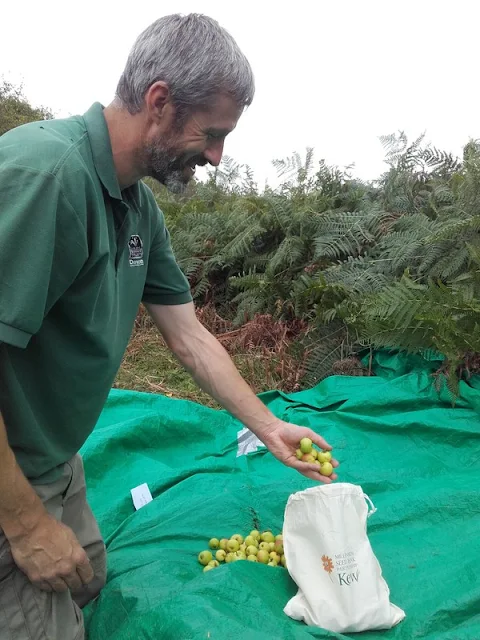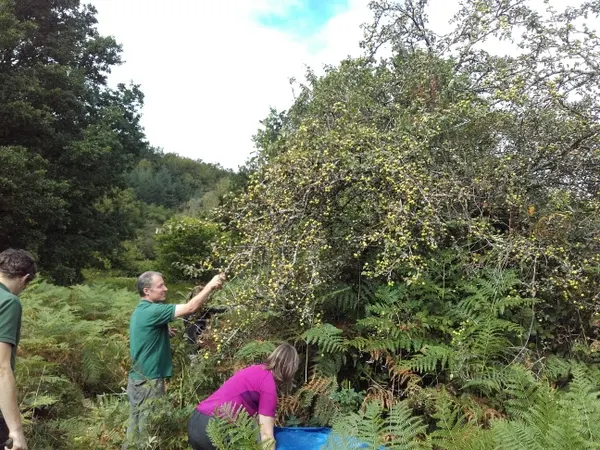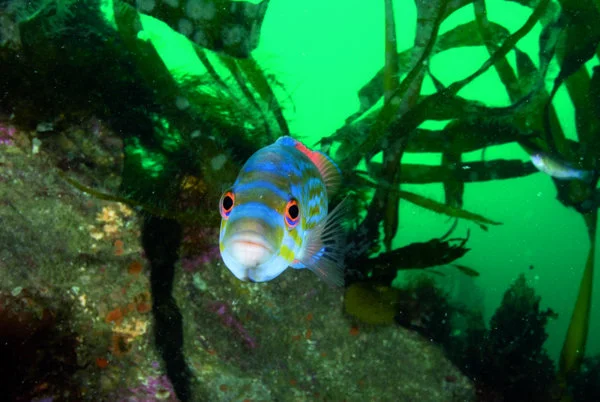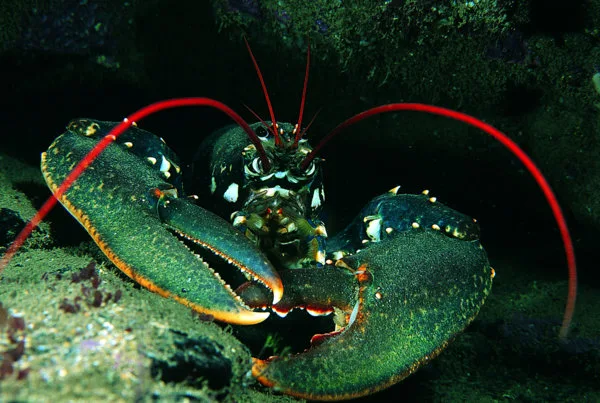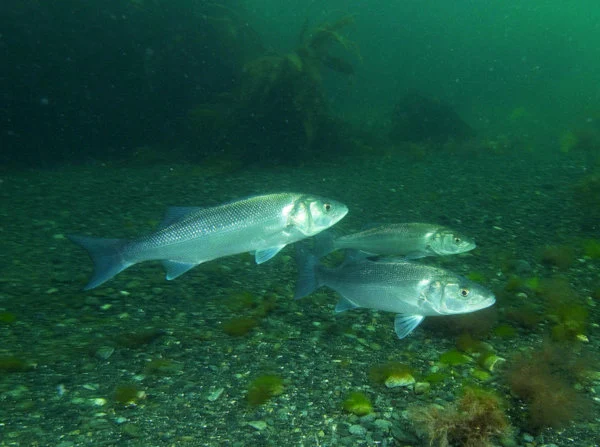A local charity is playing a key part in an initiative which
is protecting the nation's 'tree heritage'.
Throughout October Devon Wildlife Trust is collecting seed
from a series of well-known local wild tree and shrub species including
rowan, crab apple, raspberry, silver birch, honey suckle and elder. The collections are an
important part of a national project to protect the UK's trees. The charity is undertaking the work as a partner in the UK National Tree Seed Project, which has
been set up by the Royal Botanic Gardens, Kew's Millennium Seed Bank, with funding
from players of People's Postcode Lottery.
The Devon seeds are being gathered by staff and volunteers
at Devon Wildlife Trust's 49 nature reserves throughout the county. Tree seeds
collected as part of the project will be safely banked in the underground vaults of
Kew's Millennium Seed Bank - forming the UK's first national collection of tree
seeds. These can then play a vital role in conservation work to protect UK trees and
woodlands, including against pests and diseases such as ash dieback. The
collections, and associated data, will be available to researchers working on solutions
to tackle the many threats facing our woodlands.
Devon Wildlife Trust's Andrew Warren has been one of the
team who have done the seed collection work. Andrew says:
"We have been asked to gather sufficient seeds to
provide researchers and conservationists with the opportunity of increasing
education, scientific research and a greater understanding of the challenges facing UK
forests.
The project has also helped us focus on the amazing shapes,
sizes and distribution of trees on our own nature reserves. Because we've had to
seek out suitable trees of particular species it has meant going into half-forgotten
and less accessible parts our nature reserves to find unfamiliar trees, rather than
merely selecting a few well-known trees which live along the reserves' more obvious
paths and routes."
Clare Trivedi, UK National Tree Seed Project Co-ordinator at
Kew Gardens, says:
"Building up our seed collections of the nation's
favourite and most important tree species is a vital step in combating the multiplying pests
and diseases which threaten to alter our landscape dramatically. We are
delighted that Devon Wildlife Trust is supporting this project to help us ensure that
seeds from across the UK are collected and conserved."
The UK National Tree Seed Project launched in May 2013 with
the aim of securing genetically diverse collections of UK native trees and
shrubs. The species target list takes into account factors such as conservation status,
prevalence in the landscape and vulnerability to pests and diseases. The
target species include many which underpin the UK's wider plant and animal diversity, as
well as supporting woodland industry, tourism and recreation, such as ash,
juniper, Scots pine, alder, beech, silver birch and yew.
Devon Wildlife Trust's Steve Hussey says:
"As a charity working for the county's wildlife we are
very conscious of the great pride that people hold for particular local trees. Because
of the great age that trees can live to they become store-houses for people's
memories and even for local folklore. The trees are, of course, also vital homes and
food sources for local birds, insects, fungi and mammals. For these reasons they
are priceless natural assets and we are very pleased to be doing our bit to
preserve their distinctiveness for the future."
Devon
Wildlife Trust's Andrew Warren with part of the crab apple harvest from the
charity's Dunsford nature reserve
Devon Wildlife Trust staff
pick crab apples at the charity's Dunsford nature reserve (Teign Valley)
All Photos copyright DWT (All rights Reserved)

